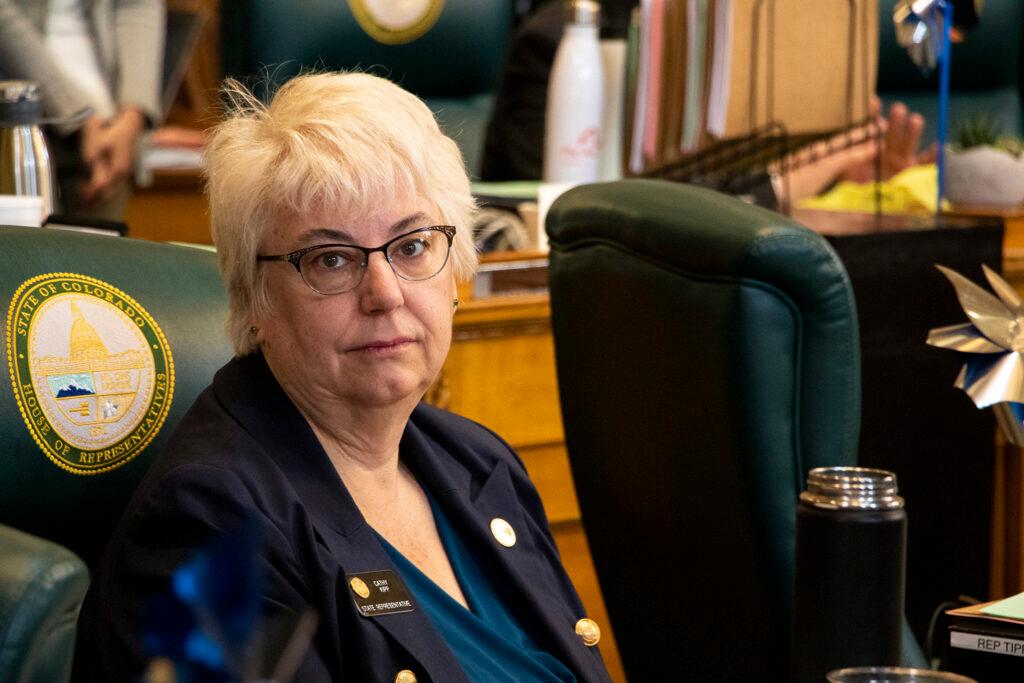Governments in Colorado would get extra days to fulfill citizen requests for public records under proposed legislation that passed its first committee vote last week. News media would get preferential treatment, which caused one lawmaker to vote against the measure.
Local governments, from school boards to counties, claimed in testimony before lawmakers that voluminous requests for records crowd out work on other core services.
“As we know money is in short supply around all of our governmental entities,” said State Sen. Cathy Kipp, D-Fort Collins, the prime sponsor. “And we really felt that there was some relief that needed to be done in order to give people a little bit more breathing room in fulfilling these requests.”
This is Kipp’s second try in as many years to make significant changes to the Colorado Open Records Act (CORA). Last year, a similar bill failed due to concerns from disability advocates, the media and parents of public school students. That bill would have labeled certain citizens as “vexatious requestors,” denying timely access to records.

This new bill has removed the “vexatious requestor” elements, and Kipp has added provisions that she said will benefit records requestors as well, like requiring most governments to accept credit card payments for records.
“I think we have achieved some really fair language to give relief to both sides and make this a better law going forward,” Kipp said at a hearing in front of the Senate State, Veterans, & Military Affairs committee.
Currently, records custodians must respond to requests for documents within three days, and in extenuating circumstances, seven days. This bill would make those deadlines five days and 10 days respectively. The news media would be exempted, and would get records under the shorter deadlines.
In reality, the public has little recourse now when governments exceed those deadlines. That won’t change under Kipp’s bill.
Kipp wanted to “make sure that we were giving access to people who are legitimate members of the media, and not just somebody who's got a blog somewhere.”
But that differentiation bothered one lawmaker who argued that the media shouldn’t be treated any differently.
“These are the people's records,” said Sen. Byron Pelton, R-Sterling. He said there are so many new ways to communicate information to the public, like through podcasts that anyone can produce and publish with their smartphone, that it’s uncomfortable territory to start defining what is professional news media.

“I just cannot get past the media part of it,” said Pelton, who was the lone ‘no’ vote on the bill.
The bill further codifies an erosion in public access to government that has been growing for years in Colorado as cash-strapped governments essentially stopped treating the maintenance and provision of public documents as a core function. Today, requesting records is routinely treated as a service for a fee in the state.
Advocates for government records noted during testimony on the bill, that fees for reviewing and providing records, now set at more than $40 an hour, already limit public scrutiny of government’s inner workings.
“That's a significant barrier all by itself,” said Jeff Roberts, executive director of the Colorado Freedom of Information Coalition. “Which is why governments don't need a reason to take longer to process CORA requests.”
There are aspects of the bill that had wide support: like requiring governments to clearly state how to file records requests and requiring governments that accept credit card payments for other services to accept credit card payments for records. Some governments still require a check to be mailed.
The bill would also increase costs and extend deadlines on businesses that wish to use public records for commercial gain.
But it was the provision, carving out the news media from some of the new restrictions, like extended response deadlines, that sparked the most testimony in opposition.
“Transparency is the cornerstone of healthy civic engagement, it is our collective responsibility,” said Natalie Menten, a former RTD board director, and advocate for public records. “Citizens should not be discriminated against.”








